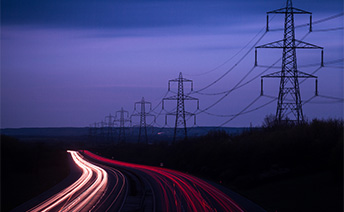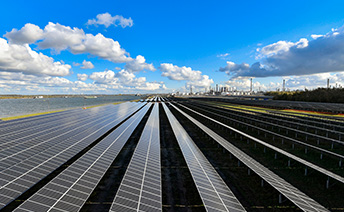Ipieca
Ipieca is the global oil and gas industry association for advancing environmental and social performance across the energy transition.[1] It brings together members and stakeholders to lead in integrating sustainability by advancing climate action, environmental responsibility and social performance across oil, gas and renewables activities.[2]
Membership of board/executive committee: Shell is a member of the executive committee.
- 2022 assessment outcome: Aligned
- 2021 assessment outcome: Aligned
Summary
Shell benefits from its membership of Ipieca, which provides an effective platform to exchange experience and good practice across a wide range of themes. Ipieca has non-lobby status and is the oil and gas industry’s principal channel of engagement with the United Nations.[3]
We found Ipieca to be aligned with our climate and energy transition-related policy positions.
We will encourage Ipieca to:
- Explicitly state support for net-zero emissions by 2050.
- Support policies to ensure that nature-based solutions complement and do not displace efforts to avoid and reduce greenhouse gas emissions.
- Support ending routine flaring sooner than 2030. Ipieca already supports ending routine flaring by 2030, but we encourage efforts to bring that date forward.
- State support for the acceleration of electrification using renewable and low-carbon power sources.
We will remain a member of Ipieca. We will continue to engage the association on climate and energy transition topics. We will continue to track alignment between Ipieca’s climate and energy transition-related positions and our own.
Further information
Click on the sections below to read more.
Paris Agreement and net-zero emissions
- Ipieca has stated support for the Paris Agreement, which it also requires its members to support.[4] [5] [6]
- Ipieca’s website includes a statement from an Ipieca Executive Committee member that Ipieca’s “climate strategy is aligned with the COP26 goals for a net zero and climate resilient future”.[7]
- Ipieca has established a Net Zero Task Force to explore pathways to net-zero emissions in line with limiting global warming to 1.5°C.[8]
- Ipieca attended COP27 with observer status, and hosted side-events relating to the Paris Agreement and net-zero emissions.[9]
Carbon pricing
- Ipieca has stated that “market-based approaches such as carbon taxes, emissions trading systems, and tradable permits or standards can generally be designed to be more economically-efficient policy options than most industry-specific regulations, technology mandates or non-tradable performance standards”; it also set out key elements of policy design.[10]
Energy efficiency
- Ipieca does not appear to advocate for energy efficiency policies. However, in 2022, Ipieca and International Association of Oil & Gas Producers (IOGP) published an updated compendium of energy and greenhouse gas efficient technologies and practices.[11] [12]
Decarbonised hydrogen
- Ipieca has stated support for decarbonised hydrogen, and notes the different ways hydrogen can be produced.[13]
Natural ecosystems
- In 2022, Ipieca published guidance on natural climate solutions that it co-developed with the Oil and Gas Climate Initiative (OGCI) in order to “support energy companies in their efforts to conserve, enhance and restore the high carbon stock ecosystems in which they operate”.[14]
- Ipieca attended the UN Biodiversity Conference (COP15) in December 2022 to “to share knowledge and explore cross-sector opportunities to scale up action on nature”.[15] [16]
Carbon capture and storage
- Ipieca has stated support for policies to promote carbon capture and storageCCS, stating that it is “one of the key technologies that could enable a low-carbon energy transition”.[17]
Environmental, social and governance (ESG) standards and benchmarks, sustainable finance taxonomies
- Ipieca is supportive of transparency in sustainability reporting in the oil and gas sector. Ipieca, in collaboration with IOGP and API, produced sustainability reporting guidance for the oil and gas industry in 2020, which references other reporting frameworks including the Task Force on Climate-related Financial Disclosures (TCFD), the International Organization for Standardization (ISO), the Global Reporting Initiative (GRI) and CDP frameworks.[18]
Coal
No position
Electrification with renewable or low-carbon power
No position
Gases and methane
- Ipieca states that “with emissions lower than other fossil fuels and a dispatchable energy source, natural gas will be an important element of the energy transition if methane emissions can be controlled across the value chain.”[19]
- Ipieca states that it supports reducing methane emissions and is an associate signatory to the Methane Guiding Principles.[20] Ipieca also supports the Oil and Gas Climate Initiative’s “Aiming for Zero Methane Emissions Initiative”.[21]
- Ipieca, in conjunction with IOGP and the Global Gas Flaring Reduction Partnership, published Flaring management guidance in February 2022.[22] The purpose of the guidance is to drive the adoption of flaring best practices, and identify effective regulatory frameworks that facilitate reduced flaring.[23]
- Ipieca supports the aims of the World Bank’s Global Gas Flaring Reduction partnership’s (GGFR) ‘Zero routine flaring by 2030 initiative’.[24]
Road transport: Passenger cars and vans
- Ipieca states that a “wide range of technologies will be necessary for the sector to evolve to a low-emissions future”, and that the “transformation of the transport sector will require sound public policies that support technology-neutral innovative solutions, are informed by a life-cycle greenhouse gas (GHG) analysis approach and provide regulatory certainty.”[25]
- In November 2021, IPIECA’s Technical Director for Climate and Energy stated “while electrification and sustainable alternative fuels will play an ever-increasing role, oil and gas will continue to be required to support global mobility and growth, as other technologies scale up during the energy transition.”[26]
Road transport: Heavy-duty vehicles
- Ipieca states that a “wide range of technologies will be necessary for the sector to evolve to a low-emissions future” and indicates that for heavy-duty road transport this will likely require a mix of oil, hydrogen, biomass, electricity and gas.[27]
Heavy industry decarbonisation
No position
Aviation
- IPIECA states that “meeting the goals of the Paris agreement requires a transformation of the transport sector” and that for aviation “deep GHG emissions reductions will require alternative fuels, with the most promising in the near-term being sustainable aviation fuels such as biomass-derived jet fuels – provided these can be developed sustainably – and synthetic fuels.”[28] [29]
- Ipieca has observer status with the International Civil Aviation Organisation (ICAO) and provides technical inputs on life cycle analysis of aviation fuels.[30]
Shipping
- IPIECA states that although shipping “is one of the most difficult modes of transport in which to lower emissions due to its long asset life and the cost of low-carbon technologies for shipping, there are measures which can support a sustainable shipping sector”.[31]
- IPIECA “supports the International Maritime Organization (IMO) to address greenhouse gas emissions from shipping”, including providing life cycle analysis of shipping fuels and inputs on enhanced fuel and engine systems.[32]
[1] https://www.ipieca.org/about-us/
[2] https://www.ipieca.org/about-us/
[3] https://www.ipieca.org/about-us/
[4] https://www.ipieca.org/resources/2020-annual-review
[5] https://www.ipieca.org/membership/ipieca-principles/
[6] https://www.ipieca.org/resources/ipieca-2021-2024-strategy
[7] https://www.ipieca.org/news/advancing-a-net-zero-future/
[8] https://www.ipieca.org/news/advancing-a-net-zero-future/
[9] https://www.ipieca.org/news/cop27-insights-and-expectations/
[10] https://www.ipieca.org/resources/exploring-low-emissions-pathways-advancing-the-paris-puzzle
[11] https://www.ipieca.org/resources/compendium-of-energy-and-ghg-efficient-technologies-and-practices
[12] https://www.linkedin.com/posts/ipieca_ipieca-iogp-alternative-thermodynamic-cycles-activity-7018890166140289024-6W8z
[13] https://www.ipieca.org/resources/awareness-briefing/hydrogen-enabling-the-energy-transition-and-the-pathways-to-net-zero-emissions/
[14] https://www.ipieca.org/resources/natural-climate-solutions-high-carbon-stock-ecosystems-management
[15] https://www.ipieca.org/news/the-paris-moment-for-nature/
[16] https://www.ipieca.org/news/ipieca-at-cop15/
[17] https://www.ipieca.org/resources/awareness-briefing/hydrogen-enabling-the-energy-transition-and-the-pathways-to-net-zero-emissions/
[18] https://www.ipieca.org/work/sustainability/performance-reporting/sustainability-reporting-guidance
[19] https://www.ipieca.org/work/climate/ipieca-at-cop26/the-role-of-the-oil-and-gas-industry-in-the-energy-transition
[20] https://www.ipieca.org/work/climate/emissions-management/ipieca-and-the-methane-guiding-principles
[21] https://www.ipieca.org/work/climate/emissions-management
[22] https://www.ipieca.org/work/climate/emissions-management/flaring-management-guidance
[23] https://www.ipieca.org/work/climate/emissions-management/flaring-management-guidance
[24] https://www.ogci.com/action-and-engagement/aiming-for-zero-methane-emissions-initiative/
[25] https://www.ipieca.org/resources/awareness-briefing/exploring-low-emissions-pathways-for-transport/
[26] https://www.ipieca.org/news/pathways-to-a-low-emissions-transport-sector/
[27] https://www.ipieca.org/resources/exploring-low-emissions-pathways-for-transport
[28] https://www.ipieca.org/work/climate/improving-fuels-and-product
[29] https://www.ipieca.org/news/pathways-to-a-low-emissions-transport-sector/
[30] https://www.ipieca.org/work/climate/improving-fuels-and-product#:~:text=Ipieca%20has%20observer%20status%20with%20the%20ICAO.%20Ipieca%E2%80%99s,and%20supply%20chain%20issues%20related%20to%20their%20development
[31] https://www.ipieca.org/news/pathways-to-a-low-emissions-transport-sector/
[32] https://www.ipieca.org/news/world-maritime-day-2022/










